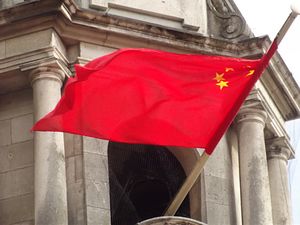One of the few certainties about the imminent 19th Party Congress due to be held in Beijing later this year is that, whatever discussion about its meaning and outcome happens inside and outside China, we won’t see much of a well-informed debate about the ideas being championed for China’s future development. English language coverage, as it did in 2012, when the last major Congress happened, will largely focus on personnel issues, evidence about President Xi Jinping’s people being promoted or demoted, and statements about how this or that faction will emerge as winners or losers.
This is a huge anomaly. Even a campaign as visceral and brutal as that between Donald Trump and Hillary Clinton in the United States last year did involve at least some clash of different attitudes and ideas – broadly a less interventionist state model (Trump) and a more engaged one (Clinton). The U.K. June election boiled down to the same kind of question – continuing austerity (Theresa May) versus ramping up the role of the state (Jeremy Corbyn).
China might still be under a one-party system. But it is hard to believe that at the heart of government these massive questions of the boundary of the state are not as passionately argued over as anywhere else. There is one very good reason for believing this: these debates in China were certainly there in the past. Throughout the 1980s, for instance, even in the first heady days of reform and opening up, figures like Deng Liqun argued fiercely against over-liberalization, whereas leaders like Hu Yaobang and then Zhao Ziyang occupied the opposing side. Even in the Maoist era, that argument, in a very particular form, was present. The leftists wanted an almost transcendent, utopian state. The few brave opponents argued for something less complete. The Cultural Revolution that began in 1966 was, in the end, a clash between one set of ideas (Maoist, class struggle, utopian ones) and another (pragmatic, more market-based approaches).
When we look at scholarship on the long sweep in imperial Chinese history, we find out quite quickly that ideas always did matter, even in what is seen as a highly hierarchical, centralized, bureaucratic state. The late historian F. W. Mote, in his magisterial account of this history from the tenth century, made clear that throughout the Song, Yuan, Ming, and Qing eras, debates about neo-Confucianism, the spread of Buddhism, the rise of Western modernity, and the response to it in China all had profound impact. There was never a period in which tensions between competing thought systems were not present. This syncretic nature of Chinese political history is very striking.
It is still present. The Communist Party since the 1990s has presented itself as a learning organization, one that puts huge resources into training its cadres at all levels, and still sends endless delegations abroad to observe and study what others are doing. Why is it therefore that the understanding and appreciation of idea and policy debate in China is so undeveloped? And why is it that despite all of this, the 19th Party Congress this year is very unlikely to be seen in terms of how it gives evidence of the victory of some ideas over others, but will rather be interpreted for the way it is seen as consolidating the power of one figure – Xi Jinping?
Part of this can be blamed on the Party itself, and its strict management of the nature of debate in China, rather than its content. Policy argument is meant to happen out of sight, in closed spaces and hidden rooms. Publicly, the onus is on harmony and unity. So opacity means the wider world is often misled into thinking no argument has taken place at all. But partly it is also down to the very particular discourse of debate in contemporary China, where a political sheen that doesn’t exist elsewhere is put on terms like market, democracy, and economic development. Lurking behind this is the one point of consensus – that all debate, no matter what, must not threaten the legitimacy of the party-state to have a monopoly on organized political activity. A matter that would be absolutely viable for debate and contestation in most other places – the right of the current elite to continue occupying their privileged position – is off the agenda in the People’s Republic currently.
That shouldn’t mislead us. Ideas matter in China, probably more than ever. As Wang Hui, one of the country’s most prominent public intellectuals, stated a few years ago, every major clash in Chinese politics in the last few decades has had, at its heart, some fundamental policy difference. The way this has so often been communicated in the West, however, is through focusing on personnel, factions, and human agency, rather than on the more abstract, elusive issues of what ideas matter, and which are becoming more dominant.
This is a pity. In the past, perhaps, we overprivileged the role of ideas in ancient Chinese development. These days, we don’t give it any real space at all. We’ll talk about the victory, or defeat, of Xi later this year when we know the outcome of the 19th Party Congress. But we won’t hear much about the victory or defeat of particular ideas. And yet it is ideas, not people, that will matter much more later this year, and which will shape the development and success or failure of China in the coming years.

































